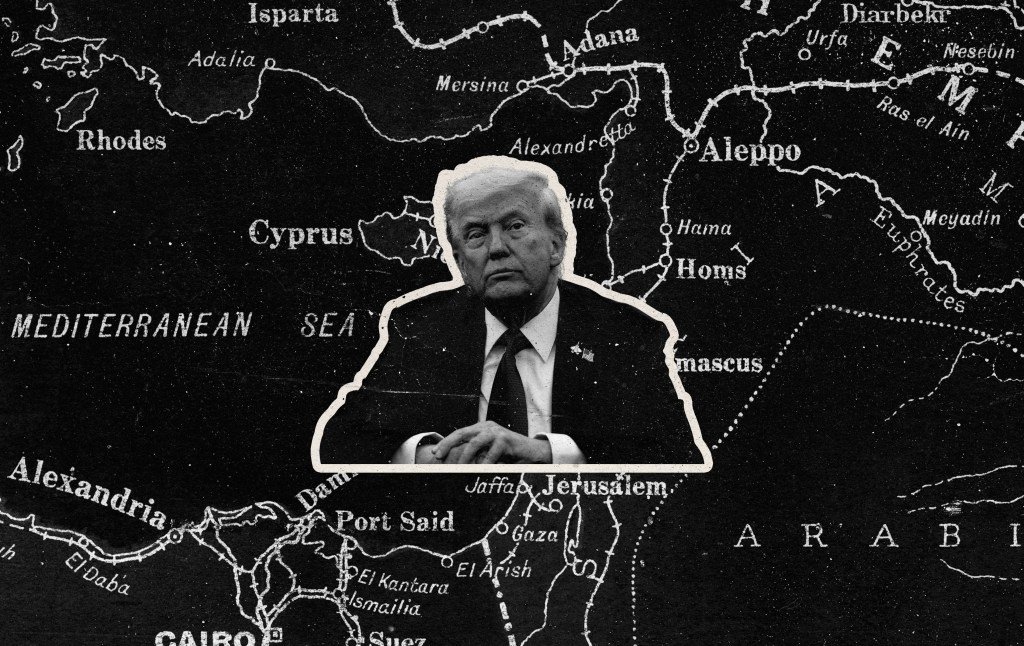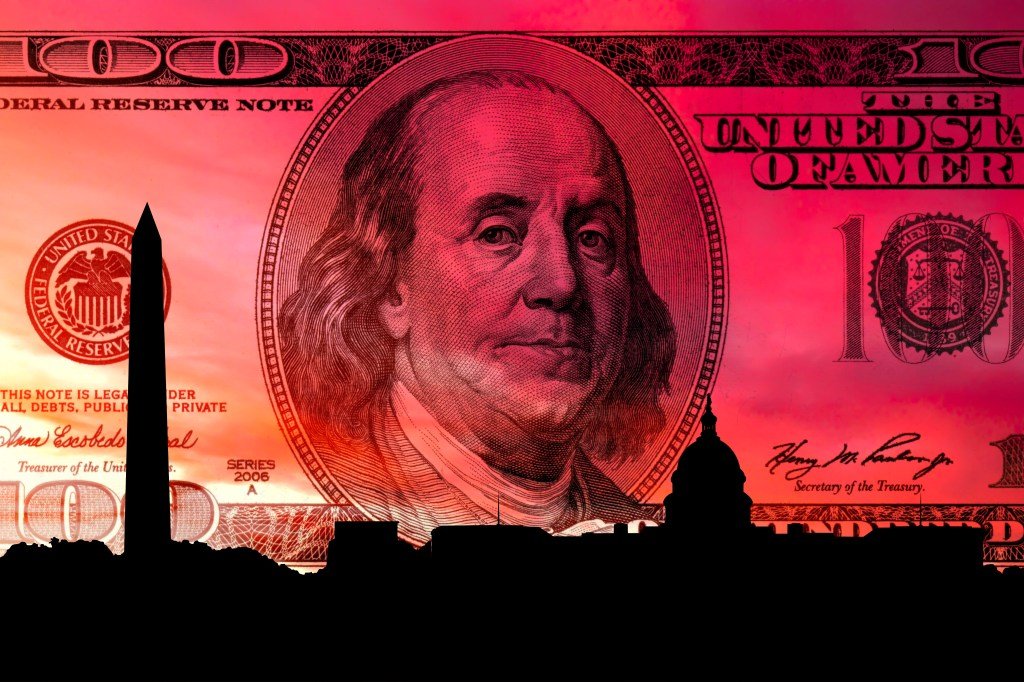
A (slightly) more liberal Middle East.
The Muslim East (the Sunni part of it, at least) has moved toward the liberal West culturally, mostly in cosmetic ways but substantively in an important way.
Saudi Arabia, the most influential Sunni nation in the region, has thrown a lot of money at the United States lately in order to give its friend/patron Trump “wins” to boast about. But that financial largesse is only one part in a larger charm offensive that’s designed to convince wary Americans that the Kingdom has more in common with them than they might assume.
LIV Golf and Formula 1, cash for Western arts institutions, futuristic new cities out of Western sci-fi: It’s all meant to prove that the Saudis aren’t as “backward” and culturally alien as they’ve been cracked up to be. (Movie theaters returned to the country for the first time in 35 years during Trump’s first term, just in time to screen Marvel’s Black Panther.) Earlier this month they held a comedy festival in Riyadh, the premise of which sounds like a gag in a Tom Wolfe novel, and attracted numerous A-list American comedians—including Pete Davidson, whose firefighter father was killed on 9/11.
“It’s easier to talk here than it is in America,” Dave Chappelle told the audience during his set, never mind that the Saudi government continues to persecute Christians and execute journalists for reporting on the royal family. To hear Chappelle tell it, the Kingdom has actually out-liberalized the liberal West.
One aspect of Sunni liberalization isn’t so superficial, though. Insofar as regional powers have gotten more comfortable with allying themselves with Israel, they’ve scrambled the “clash of civilizations” narrative about Islam waging an ideological war against Judeo-Christianity. Regional tribalism in 2025 organizes itself along nationalist lines (or sectarian-nationalist, more specifically) more so than strictly religious ones.
We can thank the Shiite clerical regime in Iran for that. And, inadvertently, the Iraq war.
Replacing Saddam Hussein’s Sunni regime with a government elected by Iraq’s Shiite majority spooked Sunni powers twice over. It expanded Tehran’s reach by putting a newly friendly Shiite state on Iran’s border, and it further incentivized Iran’s leaders to build their own nuclear deterrent to spare them from suffering Saddam’s fate at the hands of the U.S. The suddenly real prospect of Shiite fanatics with nukes helped clarify for neighboring Sunnis that Israel wasn’t their biggest problem in the region.
Some 20 years later, fears of the Shiite menace led a coalition of Sunni nations to assist Israel in repelling an Iranian missile attack. This weekend the Washington Post revealed that over the last three years—even as Sunni governments loudly denounced Israel’s campaign in Gaza—senior military officials from Qatar, Egypt, Saudi Arabia, Jordan, Bahrain, and the United Arab Emirates held meetings with their Israeli counterparts to coordinate strategy against Iran.
The Iraq war made Iran more dangerous and a dangerous Iran is almost as intolerable to Sunnis as it is to Israelis. “Pluralistic” is far too generous a term to describe how the former has evolved in their position toward the latter, but insofar as the regional taboo against recognizing Israel has weakened and looks set to weaken further, it’s a step toward pluralism. And pluralism is a step toward liberalism. That’s progress.
A (considerably) less liberal America.
I thought it was a nice touch by the president to use his speech before the Knesset today to call on Israel’s president to pardon Benjamin Netanyahu.
That’s Trump all over. Forget whether Netanyahu has committed crimes. Forget that he remains so unpopular at home that Israelis booed the mere mention of his name on Saturday at a rally in Tel Aviv to celebrate the imminent release of the hostages. To our president, power means impunity. He perceives no civic virtue or wisdom in holding political leaders accountable for wrongdoing. The closest he gets is when the leader in question happens to be an enemy of his, in which case accountability is just a species of revenge.
Trump is a postliberal, alien to the American founding. I don’t want to belabor that point since it’s an ur-theme of this newsletter, recurring in nearly every edition, but he plainly has little esteem for the values of pluralism, free markets, and human rights that were supposed to define the West’s side of the “clash of civilization.” He intervenes in markets like a Peronist. He boasts about taking certain forms of freedom of speech away. He leads a movement driven by hostility to “foreigners” of all stripes, including some who were born and raised in America.
He’s a tribalist, the avatar of an anti-Enlightenment populist project that strives for nothing less than the third-world-ification of America. That’s terrible in almost every way.
But not quite every way. If you’re looking to broker peace in the Middle East and are stuck negotiating with a bunch of tribalist, kleptocratic, authoritarian cultural imperialists, who’s more likely to get through to them? Condoleezza Rice or a tribalist, kleptocratic, authoritarian cultural imperialist?
Trump understands his Sunni counterparts and they understand him. I wrote at length in May about how his blatant tribalism and even more blatant corruption might be virtues of a sort in influencing Middle Eastern regimes to cooperate with him. Under this administration, no sheikh need worry that he’ll be double-crossed by the United States on “values” grounds the way, say, Muammar Gaddafi was after an uprising began in Libya. Not only does Trump not care about bringing liberalism to the region, he doesn’t even want it in the U.S.
He cares about getting rich, persecuting his enemies, and eliminating threats to his own power—just like his Middle Eastern counterparts do. He knows what to say and what to offer to get them to work with him.
Case in point: Rarely do I agree with Steve Bannon, but I think his read on America’s unusual dealings with Qatar lately is spot-on. Very quietly, the White House just purported to grant Doha NATO-style security guarantees and agreed to host Qatari military jets at an air base in Idaho. It sure smells like a payoff from the president to that country’s government in exchange for their help in getting Hamas to agree to a peace deal, Bannon mused. It does, doesn’t it?
I would be shocked, frankly, if Hamas’ new leadership wasn’t also getting paid a raft of cash under the table to further weaken their resolve.
But again, that’s Trump all over. He’ll eagerly partner with sleazy foreign outfits and just as eagerly bully less sleazy Western ones, secure in the knowledge that his cult of personality on the right assures him universal (or almost universal) support within his party in doing so. It’s impossible for him to “betray” American values because he doesn’t believe in those values, and his base no longer believes in any value grander than “Trump is always right.”
Which is another consequence of the Iraq war, at least in part. America’s crisis of institutional trust has many fathers, but one obvious big one was George W. Bush vowing to bring democracy and liberalism to the Middle East, sending a lot of U.S. soldiers to their deaths in service to that cause, and ultimately not succeeding. (In fairness, Iraqi democracy has held up reasonably well.) In 2016 the right renounced that sort of idealism about as emphatically as a faction can renounce it, embracing a guy so amorally rotten that even he doubts he’ll make it into heaven.
You might describe Trump’s foreign policy as “realistic” if you support it and nihilistic if you don’t. Either way, the U.S. government under postliberalism resembles the Muslim East’s value set in the “clash of civilizations” to a greater degree than anyone would have expected after 9/11.
Compromise.
And so, instead of a clash, we have a compromise. Sunni governments are inching toward first-world respect for cultural and political differences and America’s government is bounding toward third-world suppression of those same differences. We’re going to meet somewhere in the middle, it appears, with the Saudis slowly phasing in elections as the United States gets closer to phasing them out.
Perhaps the world will “flatten” into an order of second-world authoritarian systems in which freedoms are grudgingly tolerated so long as they don’t prove too threatening to the ruling regime. Letting late-night comedians poke fun at the leader? Sure, within limits. Allowing mass protests against the government? Maybe not.
In a world order like that, internal suppression of political opponents will be a quasi-legitimate means of keeping the peace domestically. Yesterday on Air Force One, for instance, Trump was asked for his reaction to news that Hamas has begun liquidating rival factions in Gaza to prevent them from filling the power vacuum in the area. “We gave them approval for a period of time,” the president said, citing Palestinians’ need to “stop the problems” and restore order in a territory that’s been laid waste by war.
It could also be that I’m too optimistic about a “second-world” homeostasis. If I’m right that Saudi Arabia’s gestures toward liberalism were driven by needing to make nice with America and Israel in order to contain Iran, it stands to reason that the decline of liberalism in those countries will ease the pressure on the Saudis to liberalize. Maybe the Kingdom will revert to raw third-world-ism. Why not? Who’s going to complain?
Israel in particular will soon face a dilemma about how to react to America’s partial surrender in the “clash of civilizations.” The Jewish state has long practiced bipartisanship in diplomacy with the United States, reasoning that it needs friends in the White House no matter which party is in charge. Increasingly, however, its lot is cast with Republicans: Because support for Israel among Democrats has collapsed, Netanyahu’s government has little choice but to try to max out support among the American right. Hence the hero’s welcome given to Trump today, replete with red MAGA-style hats reading “Trump The Peace President” handed out in the Knesset.
That’s not the sort of thing you do if you’re eager to win back Democratic support. It’s the sort of thing you do when you’ve given up on Democratic support and are aligning yourself with the postliberal GOP, for better or worse, no matter where postliberalism might lead in the United States.
But today, at least, it’s led to freedom for Israel’s hostages and the apparent end of a two-year war. Who knew that the demise of the American experiment wouldn’t be all bad?



